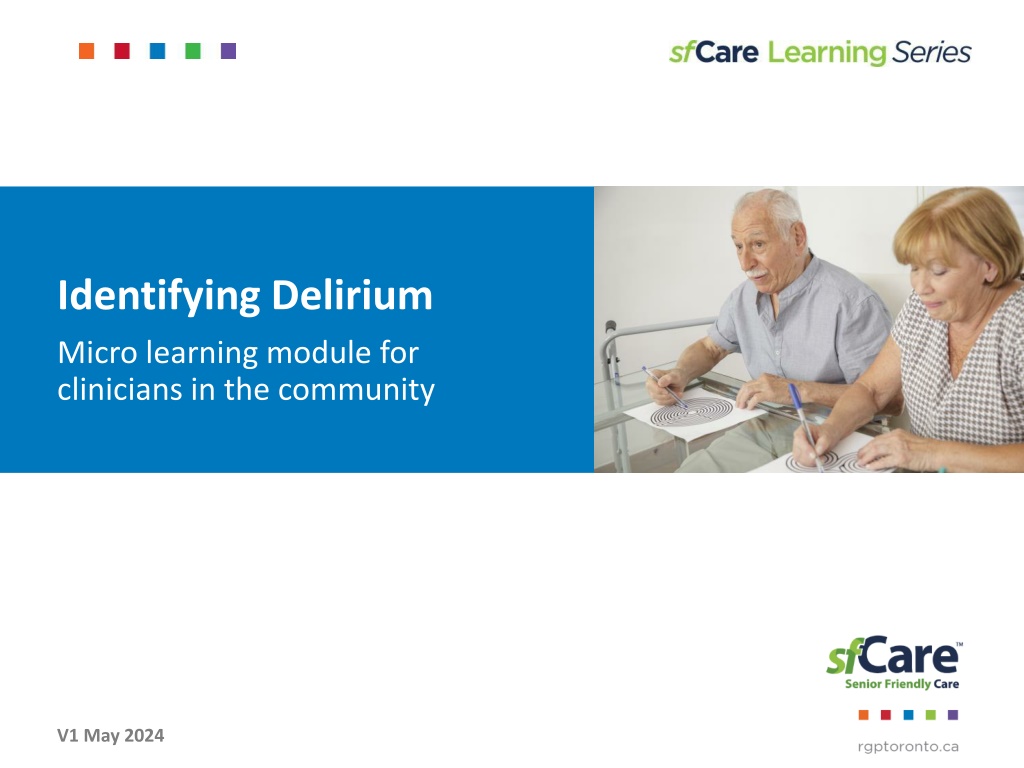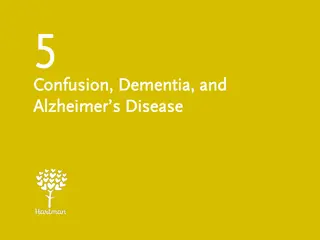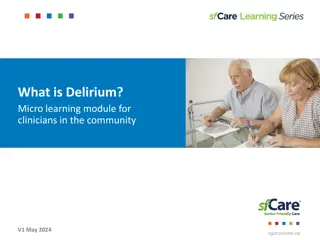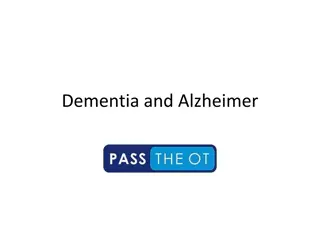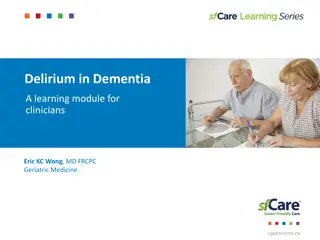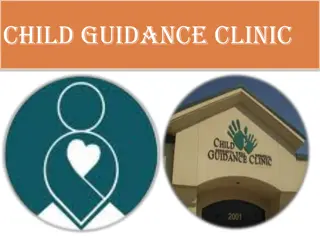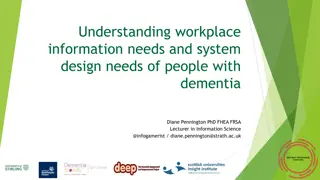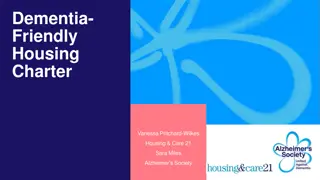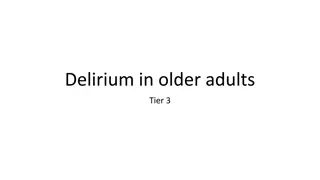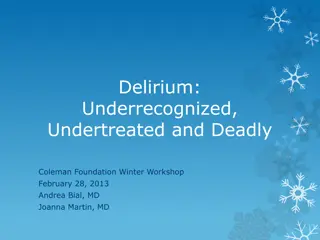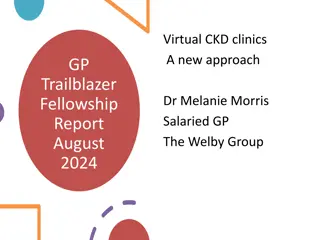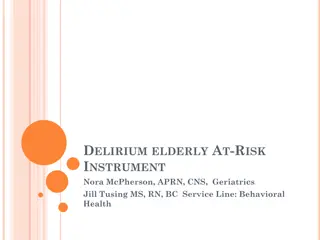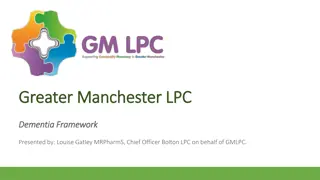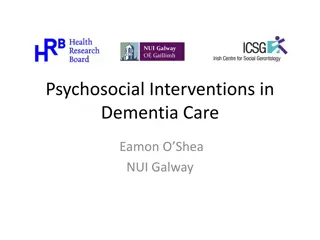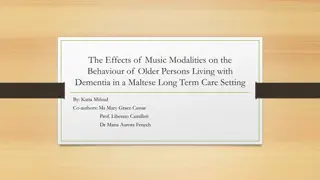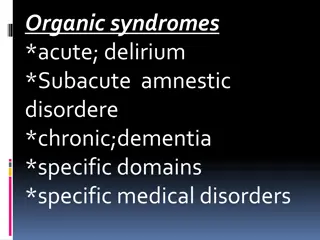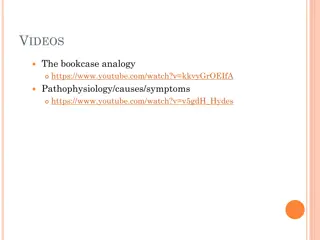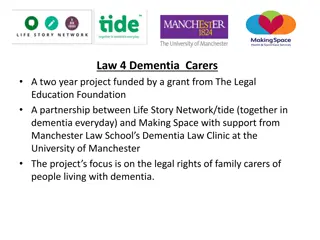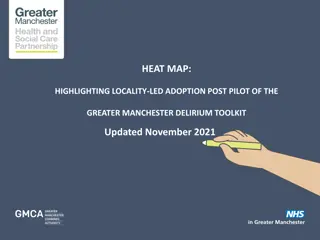Understanding Delirium: Differentiating It from Dementia in Community Clinics
Learn how to differentiate delirium from dementia in community clinic settings with this micro-learning module. Delirium is often misdiagnosed but has key features such as sudden changes in cognition, fluctuating symptoms, and altered alertness levels. Discover practical assessment approaches and case discussions to identify and address delirium promptly.
Download Presentation

Please find below an Image/Link to download the presentation.
The content on the website is provided AS IS for your information and personal use only. It may not be sold, licensed, or shared on other websites without obtaining consent from the author. Download presentation by click this link. If you encounter any issues during the download, it is possible that the publisher has removed the file from their server.
E N D
Presentation Transcript
Identifying Delirium Micro learning module for clinicians in the community V1 May 2024
RECAP: Delirium is often misdiagnosed or undetected Delirium can be mistaken for: depression dementia normal aging Delirium s key features: sudden change and fluctuating symptoms confusion difficulty focusing / paying attention change in level of alertness 2
Is it delirium or dementia? Delirium Dementia Sudden. Symptoms can fluctuate; sometimes the person seems like themselves, and sometimes they don t (hours/days) Gradual. Symptoms emerge over months or years Onset Comes and goes Progressive Confusion Attention / Ability to focus Inattentive; difficulty concentrating and easily distracted Generally normal Altered level of consciousness. Can be sleepy / less active (hypoactive delirium) or restless / more active (hyperactive delirium) or have periods of either (mixed delirium) Generally normal or slowed Alertness, levels of consciousness Mrs. F just doesn t seem like herself Delirium ALWAYS deviates from the person s usual behavioural patterns, either by timing or severity of symptoms. 3
Practical assessment approach for delirium A reliable way to tell if someone has delirium is to ask yourself and/or someone who knows the person well: ? ? Do you feel that [person s name] has been more confused lately? * Delirium is an urgent medical situation! Report your concerns to a family doctor or nurse practitioner promptly so that they can assess for delirium. *SQiD (Sands, et al., 2010) 4
Case Discussion Mrs. F seems confused about what day of the week it is. Her son tells you that his mother has been confused for the last couple years and it is getting worse. Mrs. F frequently forgets conversations and where she put things. He feels that his mother was much better two days ago but that yesterday she was very restless and was having hallucinations. Mrs. F has dementia, but her son wonders if the dementia is worsening. Could Mrs. F. have delirium? 5
Answer Key Mrs. F. may have delirium on top of her underlying dementia. Signs of delirium in Mrs. F: Sudden change in her baseline cognition - more confused than usual (son says she was much better two days ago) Altered level of consciousness she s restless and having hallucinations What would you do next? Delirium is an urgent medical situation! Report your concerns to a family doctor or nurse practitioner promptly so that they can assess for delirium. 6
How will you identify delirium? Stay alert for sudden changes in memory, thinking and behaviour. Symptoms can come and go throughout the day. Mrs. F is just not herself this morning ? ? With delirium there is always a sudden change from the person s baseline cognition and function. Persons with dementia will have a change in either the timing or the severity of their usual symptoms. Ask yourself and/or someone who knows the person well: Do you feel that [person s name] has been more confused lately? 7
